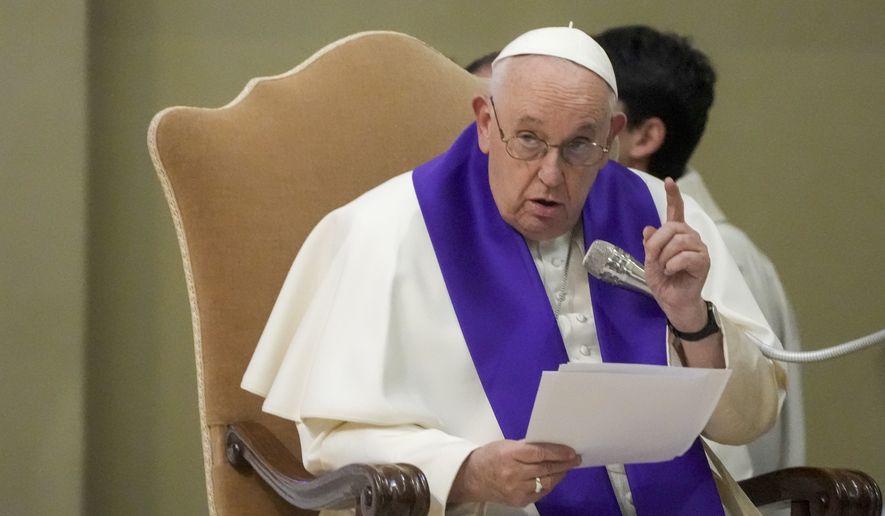OPINION:
In a Jan. 24 Associated Press interview, Pope Francis urged bishops in countries that criminalized homosexual conduct to work for the repeal of such laws. Though he restated the Church’s position that such conduct was a sin, he claimed without elaboration that there was a distinction between a sin and a crime. I agree with His Holiness that bishops should work to repeal such laws, but unlike what happened in America, they should proceed in a way that does not undermine marriage.
As for crime and sin, the Church distinguishes between the latter, violations of the natural law, and the former, those violations that human law should prohibit. Going back at least to St. Thomas Aquinas in the 13th century, the Church has maintained that it was not necessary for criminal law to prohibit all acts that were sins, but only those that were “chiefly … to the hurt of others.”
Without more, this could sanction the decriminalization of homosexual conduct since the partners consent to any moral harm they mutually inflict.
Aquinas continued, however, to recognize that criminal law must prohibit “more grievous vices … without the prohibition of which human society could not be maintained.” If decriminalization were accomplished in a way that gravely harmed society, it should come within this prohibition as well.
It is well known that the Catholic Church supports marriage between a man and a woman as the keystone of civil society and opposes all laws that would undermine it. When homosexual conduct is not just tolerated but is given legal protection, there is a hydraulic pressure to go from a right that government must respect to conduct it must affirm. That is exactly what happened in the United States when the Supreme Court recognized a constitutional right states must respect the intimate relations gay or straight people could choose and then held that withholding marriage from the former would disrespect that choice.
St. John Paul II recognized this slippery slope in a 2003 declaration authored by then-Cardinal Joseph Ratzinger, later Pope Benedict XVI, distinguishing between simple toleration of homosexual unions on the one hand and legal recognition of such unions regarding certain marital rights on the other. The recognition of certain rights short of marriage — say, the inheritance tax exemption for spousal property — would still constitute “the approval or legalization of evil” since such rights would “confer legal guarantees, analogous to those granted to marriage, to unions between persons of the same sex.” Such recognition “would obscure certain basic moral values and cause a devaluation of the institution of marriage.”
Both prelates, however, acknowledged that there was a “difference between homosexual behavior as a private phenomenon and the same Behavior as a relationship in society … where it becomes one of the institutions in the legal structure.” De facto tolerance, where there was “no explicit legal recognition of homosexual unions,” was permissible provided strict safeguards were followed, “above all … [not] exposing young people to erroneous ideas about sexuality and marriage that would deprive them of their necessary defenses and contribute to the spread of the phenomenon.”
How then should bishops respond to Pope Francis’ call without undermining marriage in their countries? In a dissenting opinion several years ago, Justice Antonin Scalia suggested that decriminalization should proceed legislatively, by repealing existing laws, and not judicially, by recognizing a constitutional right to same-sex conduct:
One of the benefits of leaving regulation of this matter to the people rather than to the courts is that the people, unlike judges, need not carry things to their logical conclusion. The people may feel that their disapproval of homosexual conduct is strong enough to disallow homosexual marriage but not strong enough to criminalize private homosexual acts — and may legislate accordingly.
The AP interview raised other questions I will not address here. For example, with homosexuals in mind, Pope Francis affirmed that “God wants us as we are and with the strength that we each fight for our dignity.” Did His Holiness mean dignity regardless of sexual tendencies or dignity to act on such tendencies?
Again, when he urged families to create the “framework for … [gay members] to live in peace,” did he mean just “a son or a daughter with homosexual tendencies,” or would he include married couples, even where it might involve formal cooperation with their same-sex unions. Again referring to homosexuals, he stated that he “[didn’t think] anyone should be discriminated against[,]” without distinguishing between just and unjust discrimination, as did the two popes before him and Section 2358 of the Catechism of the Catholic Church.
Though a press interview is not the forum for theological analysis, I suspect Pope Francis was following the lead of the Holy Spirit “to make a little confusion” in order “to create harmony” through our striving to resolve, in his words, the “mess.” I hope my thoughts have furthered that harmony and have not worsened the mess.
• Stephen L. Mikochik is a professor emeritus at Temple Law School and a visiting professor of the Ave Maria Law School.




Please read our comment policy before commenting.